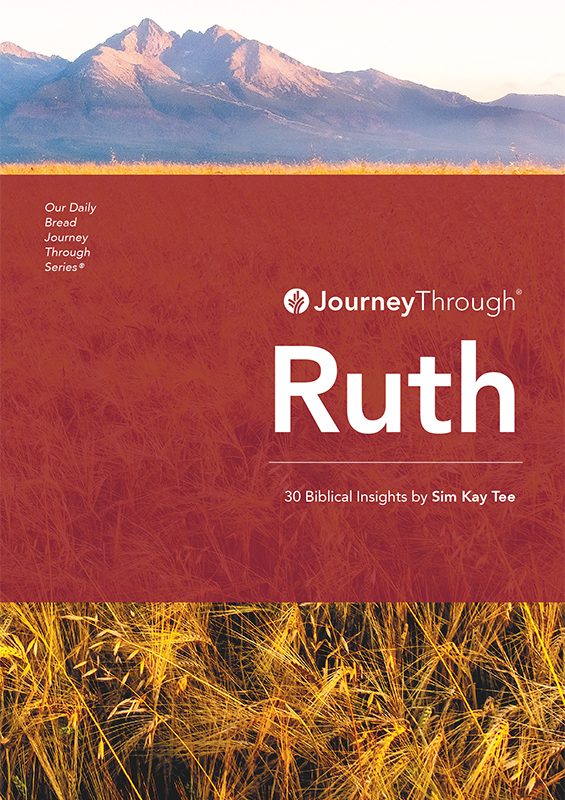Ruth
by Sim Kay Tee
The story of Ruth involves two people who are worlds apart-ethnically, culturally, and economically. Ruth is a poor young Moabite widow who has followed Naomi, her aged mother-in-law, back to Israel, trying her utmost to survive in a foreign land. Boaz is a wealthy landowner and highly respected Israelite from Bethlehem. He is a relative, a guardian-redeemer of Elimelek (Ruth 2:20), Naomi's late husband. Boaz is much older than Ruth (3:10–11).
As affection and then love grows between Boaz and Ruth, a wedding is anticipated. But there is a problem: the prevailing custom on levirate marriage gives the nearest relative the first right to marry Ruth (Deuteronomy 25:5–10), and Boaz is only second in line (Ruth 3:12–13). If the nearest relative exercises his right, Boaz and Ruth cannot be together.
However, God has declared that ″the sceptre will not depart from Judah″ (Genesis 49:10), the tribe to which Boaz belongs (Matthew 1:3–5). One of his descendants will be the King to whom all nations will submit and give honour (1:16). God will ensure that this comes to pass, saying: ″Surely, as I have planned, so it will be, and as I have purposed, so it will happen″ (Isaiah 14:24).
The story of Ruth is about how God works in and through the ordinary circumstances of life. There are no spectacular signs and wonders to showcase. The characters of the story are common, ordinary folks in an everyday setting, struggling with bread and butter issues, trying to raise a family in a morally-corrupt and godless world (Ruth 1:1).
But God's resolute—albeit invisible-hand is directing such people to accomplish His divine purposes and plans. And whenever and wherever God works, it is extraordinary, miraculous, and divine!
Key Verse
″Where you go I will go, and where you stay I will stay. Your people will be my people and your God my God.″ -Ruth 1:16





